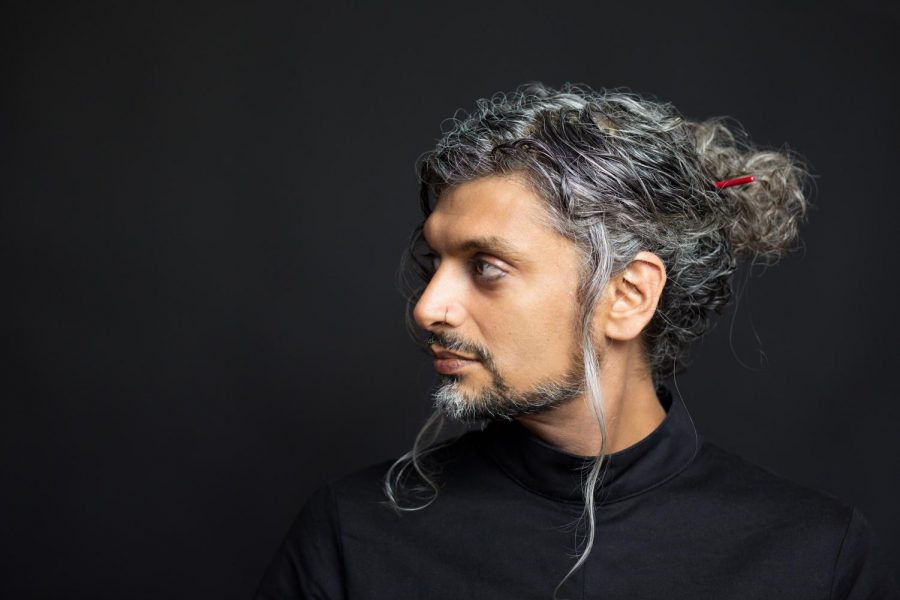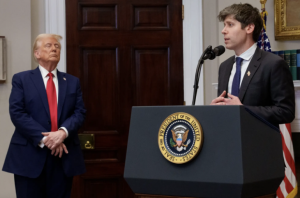Transnational, multi-genre poet visits campus to share writing
Photo by Tanya Rosen-Jones on https://www.kazimali.com/press-kit.html
Kazim Ali has written across several genres, including poetry, memoir and fiction.
March 8, 2020
On Feb. 28, CSUSM students had the opportunity of hearing from author Kazim Ali read from and speak about his work. The reading was hosted by the Literature and Writing department as part of their Community and World Literary Series (CWLS), a series where acclaimed contemporary authors visit campus to share their writing.
Ali writes in multiple genres, including poetry, fiction, essay and memoir. In addition, he has worked as a translator, editor and educator. He is currently a faculty member at UC San Diego.
During the event, Ali first read several poems from his extensive body of work, then answered questions from students on his work, inspiration and personal life.
Throughout his life, Ali has lived in diverse locales, including the U.K., Canada, France, India and the United States. Each of these places has heavily shaped his writing. “Wherever I go, I really try to get in tune with the landscape, with the people, with the sound of it, with the smell of it,” he said. “The writing that happens in different places is very different.”
For instance, in India, he gravitated to journaling and translating other authors’ works. In Canada, he worked as a journalist. In France, he was taking a gap year, and wrote a lot of poetry.
He also spent time in Palestine nearly a decade ago as a yoga instructor, which was an unforgettable experience that he is currently writing a book about. “It’s a complicated place to live,” he said. “The checkpoints are a part of daily life, you couldn’t always get what you needed…the politics of daily life was so present that I don’t think it really informed me as a writer while I was there.”
“It did take a long time after for me to really start writing about it in a more direct, real way,” he said. “Recollection is interesting – it means there must be a space of time between the experience and the writing about it, rather than writing about it in the immediate moment.”
Ali also spoke about the benefits and difficulties of translating a text into another language. “There’s a lot value in translating, but it’s a very challenging practice to do,” he said, pointing out challenges such as differences in rhyme, rhythm, sound and wordplay as well as culturally specific references. “It is truly like writing a new poem,” he said. “You have to figure out as a translator how to bridge all those gaps.”
Another gap that Ali is figuring out how to bridge is the gap between Ali and his father. “My father and I have a very complicated, dramatic, traumatic relationship,” he said. Ali used his relationship with his father to inform a series of poems he has written that reinterpret the Greek myth of Icarus and Daedalus.
“Icarus’ name means the follower – the son is meant to follow his father; because he didn’t follow, he fell,” he said. In the Icarus poems, Ali was able to reimagine the myth in greater detail and explore it from a new perspective.
One student asked what originally drew Ali to pursue poetry. He answered that it came from his love of language, music and dance. “I love the anarchy of sense…I veer away from too much structure in thought, and so poetry was the way to do that,” said. “[Poetry] became my true medium.”
For Ali, writing a poem often takes years. “[Poems] are very long in incubation,” he said. “For me it takes a long time, to write a draft and then mull it over.” He also sees writing as dynamic rather than static, constantly evolving.
“There’s no perfect, completed writing ever,” he said. “I was making changes on the spot as I was reading to you.”
Ali’s unique story and the quality of his writing was no doubt inspirational to the many students who attended. To keep up with Ali’s work, visit his website, kazimali.com.
The next CWLS literary reading will be from CSUSM professor Francesco Levato on Mar. 19.







